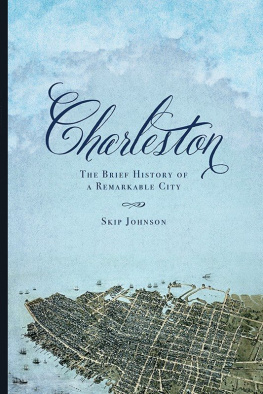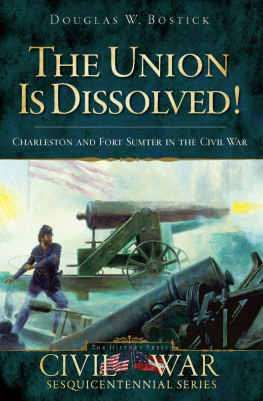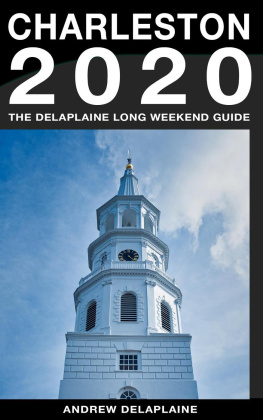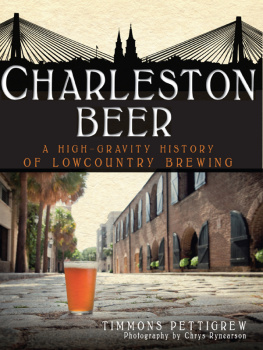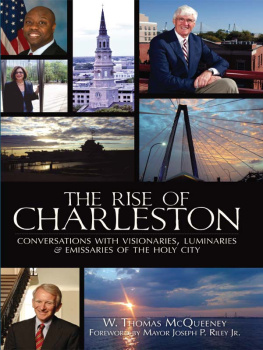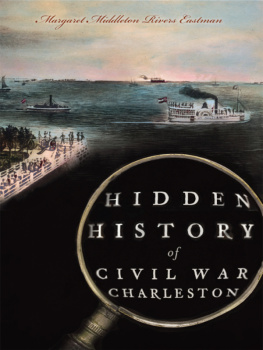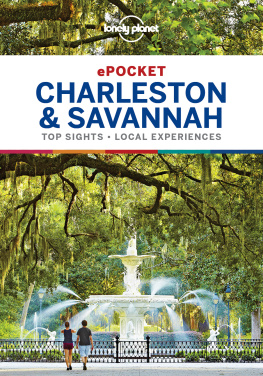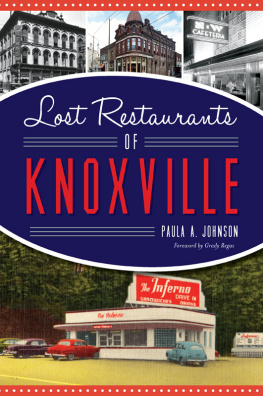Skip Johnson - Charleston: The Brief History of a Remarkable City
Here you can read online Skip Johnson - Charleston: The Brief History of a Remarkable City full text of the book (entire story) in english for free. Download pdf and epub, get meaning, cover and reviews about this ebook. year: 2016, publisher: BookBaby, genre: History. Description of the work, (preface) as well as reviews are available. Best literature library LitArk.com created for fans of good reading and offers a wide selection of genres:
Romance novel
Science fiction
Adventure
Detective
Science
History
Home and family
Prose
Art
Politics
Computer
Non-fiction
Religion
Business
Children
Humor
Choose a favorite category and find really read worthwhile books. Enjoy immersion in the world of imagination, feel the emotions of the characters or learn something new for yourself, make an fascinating discovery.
- Book:Charleston: The Brief History of a Remarkable City
- Author:
- Publisher:BookBaby
- Genre:
- Year:2016
- Rating:5 / 5
- Favourites:Add to favourites
- Your mark:
- 100
- 1
- 2
- 3
- 4
- 5
Charleston: The Brief History of a Remarkable City: summary, description and annotation
We offer to read an annotation, description, summary or preface (depends on what the author of the book "Charleston: The Brief History of a Remarkable City" wrote himself). If you haven't found the necessary information about the book — write in the comments, we will try to find it.
Charleston: The Brief History of a Remarkable City — read online for free the complete book (whole text) full work
Below is the text of the book, divided by pages. System saving the place of the last page read, allows you to conveniently read the book "Charleston: The Brief History of a Remarkable City" online for free, without having to search again every time where you left off. Put a bookmark, and you can go to the page where you finished reading at any time.
Font size:
Interval:
Bookmark:
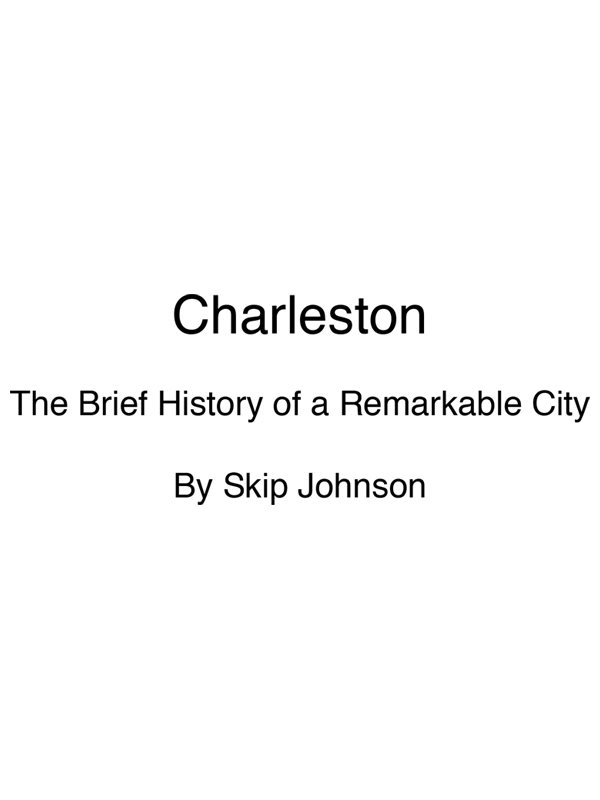
Copyright 2016 by Skip Johnson
All rights reserved.
First paperback edition March 2016
First ebook edition September 2016
Editor: Margaret Ford Rogers
Cover Design: Alison Best, Trio-Solutions
Maps: Gary Gillmore
No part of this book may be reproduced or transmitted in any form or by any means, electronic or mechanical, including photocopying, recording or by information storage and retrieval system except by a reviewer who may quote brief passages in a review to be printed in a magazine, newspaper, or on the Web without permission in writing from the author.
Meeting Street Press
PO Box 20301
Charleston, S.C 29403
Paperback ISBN: 978-0-9887113-0-3
Ebook ISBN: 978-1-4835824-5-0
Also by Skip Johnson:
The Gospel of Yeshua:
A Fresh Look at the Life
and Teaching of Jesus
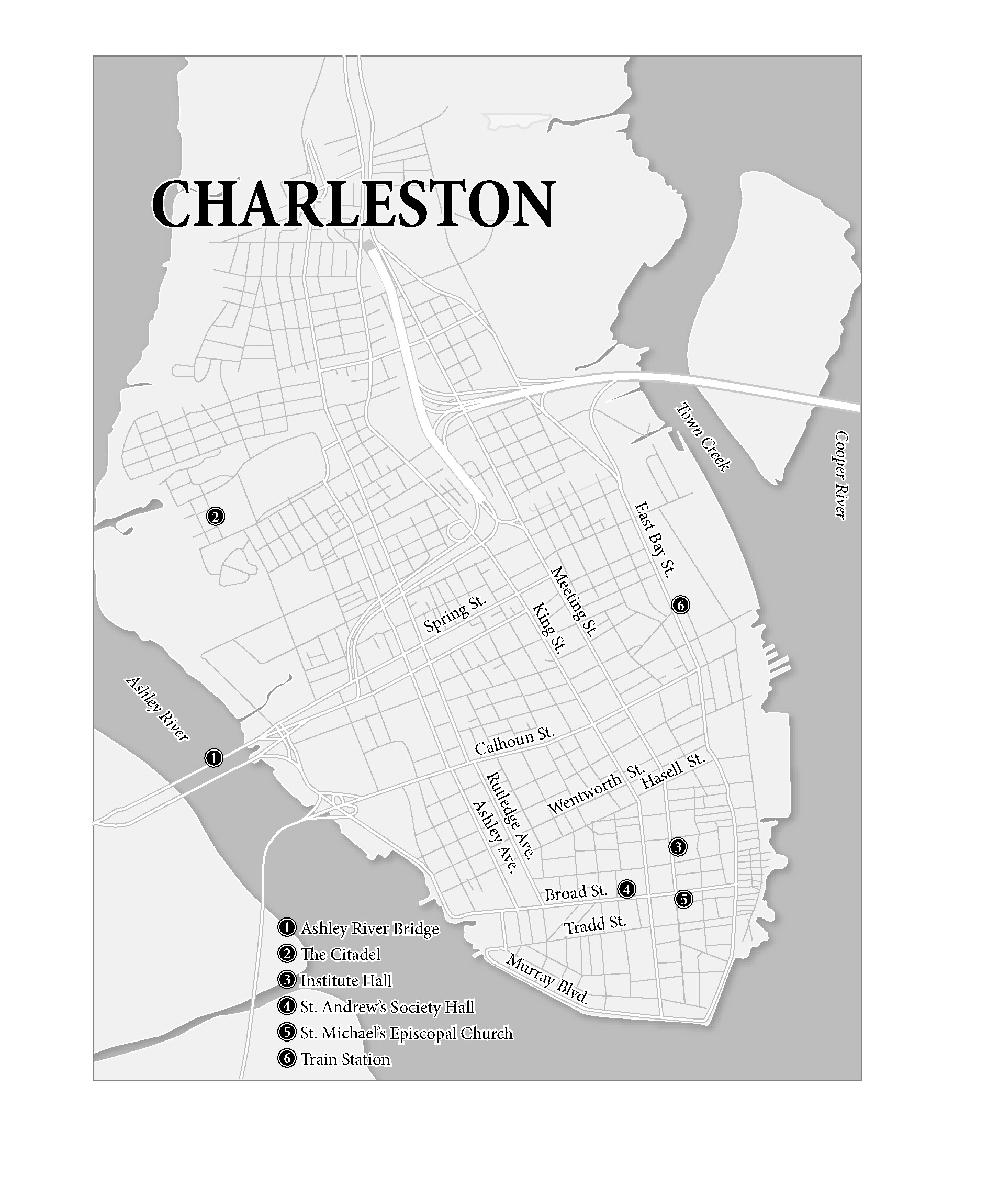
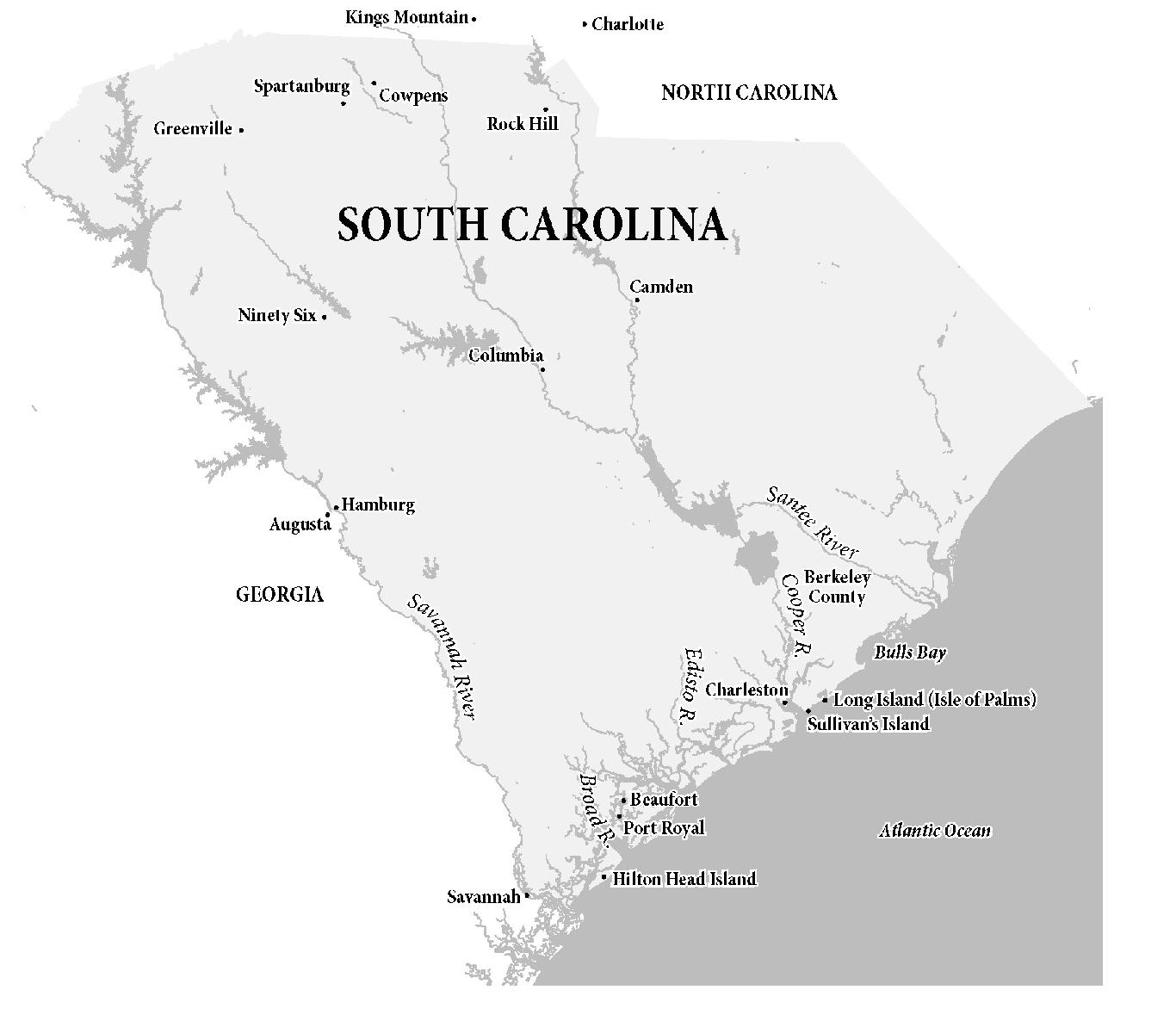
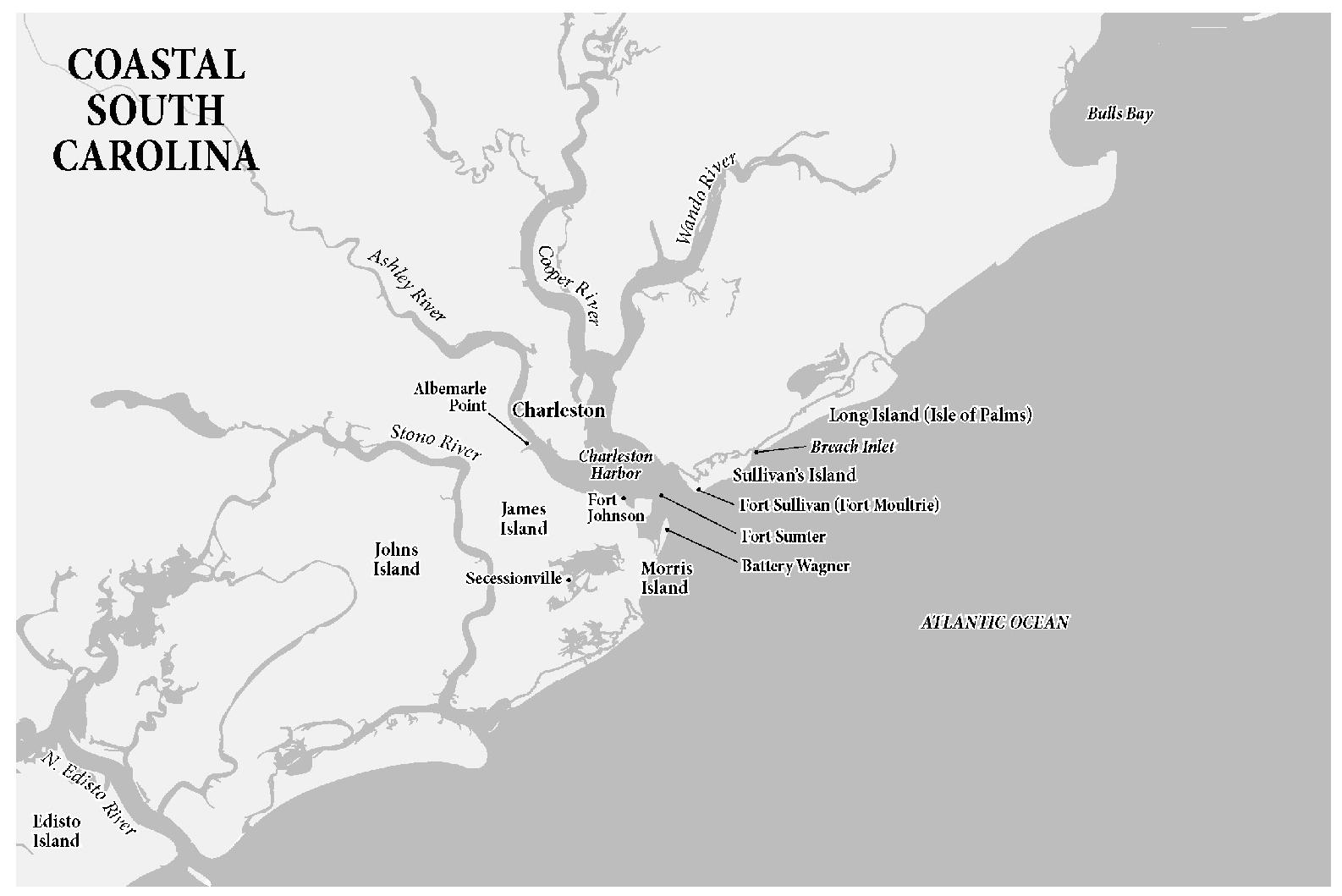
When most people think of the American Revolutionary War they think of the Northeast, names like Boston, Lexington, Concord, Valley Forge and Yorktown. Very few people think of Charleston or South Carolina first, if at all. And yet
- Americas first major military victory of the war came when hurriedly trained members of the South Carolina militia defeated the world-renowned British Armada when the Armada tried to attack Charleston.
- The battle that essentially won the war for America was fought in South Carolinas Upcountry, at Cowpens.
- South Carolina recorded more battles than any other state.
- South Carolina lost more men per capita to the war than any other state.
- And after the war ended, South Carolina was saddled with more war debt than any other state.
Take just one example from that list: Americas first major victory of the Revolutionary War, the Battle of Sullivans Island. You dont hear much about that battle anymore except in Charleston, where it is celebrated as Carolina Day. But, at the time it was fought June 28, 1776 it was such a momentous victory that Americans everywhere celebrated it ecstatically for days on end.
For on that day, a few hundred militiamen, mostly young South Carolinians but a number of volunteers from neighboring states as well, defeated the world-feared British Armada when it attacked Charles Town even though the Armada vastly outnumbered the militia, and the militiamen had received only rudimentary training as cannoneers, were equipped with a pitifully inadequate consignment of gunpowder, were protected only by a make-do fort built by hurriedly piling up palmetto logs, and had no federal troops to help or advise them.
The victory gave Americans everywhere a badly needed reason to hope, and the national celebrations were still going strong six days later when four men from the Charleston area joined 52 of their fellow countrymen in signing the Declaration of Independence.
In fact, the Battle of Sullivans Island once was considered so important nationally that June 28 was in competition with July 4 to be recognized as Americas Independence Day. Congress eventually chose July 4, and the importance of June 28 mostly faded from national memory. In Charleston, however, several local organizations still gather every June 28 to commemorate what is now known as Carolina Day.
Charlestons role in the Civil War, while certainly not ignored by historians, is nevertheless largely misunderstood. Early historians tended to focus on slavery while they glossed over most other aspects of the city and its people, and as a result some popular misconceptions of pre-war Charleston persist to this day.
For instance, many people picture pre-war Charleston as being populated mostly by cruel, slave-whuppin, black-hatin white people. Not true! Only a tiny percentage of Charlestons white population mostly rich white plantation owners owned slaves. But they were not the only slave-owners in Charleston. On the day the war began more than 3,000 free blacks lived in Charleston, and many of them owned slaves. The freed blacks lived among the majority white population.
Although slavery itself is without question a horribly cruel institution, only a tiny percentage of slave-owners purposefully abused their slaves. Slaves were hugely expensive, and slave-owners had to keep them healthy to accomplish their often-backbreaking work. For his own sake, he had to keep them healthy. He would not abuse his livestock and he would not abuse his slaves whom he considered as being little more than livestock.
As for the huge majority of Charlestonians who did not own slaves, they were pretty much like people everywhere. Many opposed slavery on principle and made their opinions known openly, loudly, and sometimes violently. Others knew slavery was evil but they considered it a necessary evil. Or, they knew it was evil but felt powerless to do anything about it. Still others didnt care one way or the other. To them slavery was neither good nor bad. It just was.
Another misconception relating to Charleston is the idea that Abraham Lincoln freed slaves when he signed the Emancipation Proclamation. He did not! He never even freed one slave. His Emancipation Proclamation purposefully and specifically freed only slaves in the Confederate states states he did not control. And he allowed slavery to continue unabated everywhere else it existed which included states in the Northeast, the West, and the Border States of Delaware, Maryland, Kentucky and Missouri. He even allowed slavery to continue in the Southern states of Tennessee, Louisiana and 48 counties in the western parts of Virginia (later to become West Virginia) that already were occupied by federal troops. Those states (and partial states) gave up slavery only after the 13 th Amendment was ratified in December 1865, which freed all slaves in America. But that came more than three years after Lincoln signed the Emancipation Proclamation in September 1862, and nearly eight months after he died.
All this is not to cast any doubt on the fact that pre-war Charleston was the epicenter of slavery in America. Still, Charleston should not bear the full weight of the blame. The Northeast must shoulder some of that burden. It doesnt get much press these days, but right up to the beginning of the Civil War the majority of the richest and most well-respected slave traders in America lived and plied their trade in New England. And neither the Southern slave owners nor the New England slave traders were doing anything that had not been perfectly legal and morally acceptable in all of the Colonies from the time the first white people arrived in America until after the Revolutionary War ended.
Why arent Charlestons and South Carolinas war histories more widely known?
The answer lies not in prejudice against the South as much as in human nature.
Those who win wars write their histories, which almost invariably means the histories glamorize the winners successes and minimize or even vilify the losers. Thats how its been with all wars, and thats how it was with the Civil War. When the war ended, the industrialized North had virtually all the factories and major universities, and most of the people, money, presses, and historians with time to write. The agrarian South, especially South Carolina, had misery. So, Yankee writers wrote and published the histories, naturally emphasizing their side of the story and often at the expense of the South.
Next pageFont size:
Interval:
Bookmark:
Similar books «Charleston: The Brief History of a Remarkable City»
Look at similar books to Charleston: The Brief History of a Remarkable City. We have selected literature similar in name and meaning in the hope of providing readers with more options to find new, interesting, not yet read works.
Discussion, reviews of the book Charleston: The Brief History of a Remarkable City and just readers' own opinions. Leave your comments, write what you think about the work, its meaning or the main characters. Specify what exactly you liked and what you didn't like, and why you think so.

